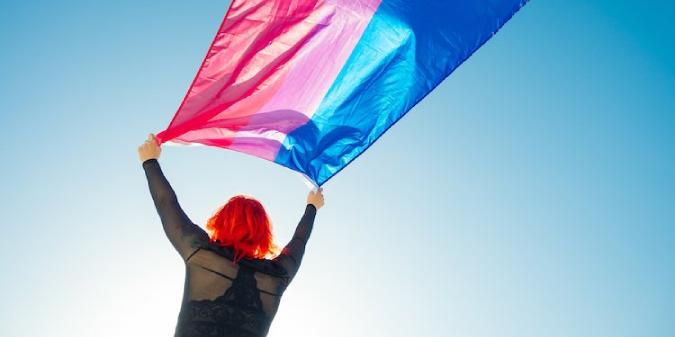What are the Benefits of Being a Bisexual
Aug 22, 2022

Bisexual people are those who are attracted to two or more genders. You wouldn't think there would be such discourse surrounding this sexuality, but there are sadly naysayers dictating how bisexual people and couples should live their lives. Even in the LGBT community.
Of course, there is nothing wrong with bisexual people or their sexuality, it's the stigma around it that causes issues. By itself, there are many benefits of being bisexual. Upsides and positives that not a lot of people can claim, ranging from their expanded choices in their dating pool to their insight on how both men and women generally operate in a relationship. They're clued in on the differences between the two that they can utilize to have a more fulfilling and loving relationship.
A Larger Dating Pool
Bisexual people and couples are more likely to have more options in their dating pool, where ever they may live. People who are attracted to more than one gender have plenty of people they can have a base attraction to, twice more than that gay or straight people. Of course, this does not mean that bisexual people are attracted to every single person they meet, or that they're likely to sleep with anyone.
(This is actually a misconception or a myth that spreads prejudice about bi people. Do your best not to fall into this belief.) It just means that the B in LGBT have far more options than many others in the community, Bisexuality doesn't just mean being attracted to both men and women. There are many who have an, even more, fluid definition of their own bisexuality, where they find themselves attracted to nonbinary or gender non-conforming people.
Bisexual People Can Be More Adventurous in the Bedroom
Let's start by making it clear that just because someone is bisexual, doesn't mean they will automatically be comfortable with having threesomes. There is no harm in asking, but DO NOT PRESSURE ANYONE TO PARTICIPATE IN SOMETHING THEY DON'T WANT TO BE PART OF.
On the other hand, many bisexual people take advantage of their attraction to their own gender to bring more variety to their sex lives. Not just for their partner, as bisexual people should do this only if it gratifies and satisfies them as well. Being bisexual also gives them a lot more room to experiment with what turns them on in, and with who.
A Broader Perspective When it Comes to Dating
Bisexual people are gifted with the insight of knowing what makes both men and women tick in a relationship. Having experience with these two genders can help them become more understanding of what the other gender perceives and experiences. Simultaneously, bisexual people may also be aware of their own actions and how their partner may interpret them as well.
This is of course not a given as there are many clueless bisexuals out there, and their observations do not even apply to every single man and woman seeing as everyone is multi-faceted in their own way.

Couple Looking For Bisexual Woman
When couples are looking for a bisexual woman to join their relationship, commonly referred to as a "unicorn" in the polyamorous community, there are several considerations to keep in mind. The dynamics of such relationships can be complex, and it's crucial to approach the situation with respect, honesty, and a clear understanding of everyone's needs and boundaries.
Communication: Open and honest communication is the cornerstone of any successful relationship, especially when it comes to non-monogamous relationships. All parties involved should discuss their desires, expectations, and boundaries upfront. This includes topics such as emotional involvement, sexual preferences, and the structure of the relationship.
Respect: It's essential to respect the autonomy and agency of the bisexual woman you're looking for to join your relationship. She should be treated as an equal partner, with her own needs, desires, and boundaries that are just as valid as yours.
Consent: Consent is non-negotiable in any relationship, but it's especially crucial in non-monogamous relationships. All parties must freely and enthusiastically consent to any activities or relationship dynamics. No one should ever feel pressured or coerced into participating in something they're uncomfortable with.
Be Open-Minded: Non-monogamous relationships come in many forms, and what works for one couple may not work for another. Be open-minded and flexible in exploring different relationship structures and dynamics that accommodate everyone's needs and desires.
Patience: Finding the right person to join your relationship can take time and patience. Be prepared for the process to potentially be challenging and involve setbacks along the way. Rushing into a relationship with the first person you meet is unlikely to result in a healthy and fulfilling dynamic for everyone involved.
Respect Privacy: Not everyone is comfortable with their non-monogamous relationship being public knowledge. Respect the privacy of all parties involved and only disclose information about your relationship to others with their explicit consent.
Seek Support: Building and navigating a non-monogamous relationship can be complex and emotionally challenging at times. Ask for support from friends, family members, or online communities who are experienced in non-monogamy and can offer guidance and advice.
Regularly Check-In: As with any relationship, regular check-ins are essential to ensure that everyone's needs and boundaries are being met. Take the time to discuss any concerns or issues that arise and make adjustments as necessary to maintain a healthy and fulfilling dynamic.
Self-Reflection: Continuously reflect on your own motivations, desires, and insecurities throughout the process. Understand how they may be influencing your behavior and decisions, and work towards addressing any underlying issues to foster healthier relationships overall.